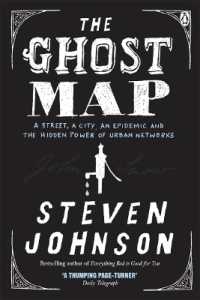基本説明
One of ottoman charitable endowments (waqf), the public soup kitchen (imaret) served travelers, pious mystics, and local indigents alike. This book examines the political, social, and cultural context for founding these public kitchens.
Full Description
Presents the political, social, and cultural context behind Ottoman charity.
Ottoman charitable endowments (waqf) constituted an enduring monument to imperial beneficence and were important instruments of policy. One type of endowment, the public soup kitchen (imaret) served travelers, scholars, pious mystics, and local indigents alike. Constructing Ottoman Beneficence examines the political, social, and cultural context for founding these public kitchens. It challenges long-held notions about the nature of endowments and explores for the first time how Ottoman modes of beneficence provide an important paradigm for understanding universal questions about the nature of charitable giving.
A typical and well-documented example was the imaret of Hasseki Hurrem Sultan, wife of Sultan Süleyman I, in Jerusalem. The imaret operated at the confluence of imperial endowment practices and Ottoman food supply policies, while also exemplifying the role of imperial women as benefactors. Through its operations, the imaret linked imperial Ottoman and local Palestinian interests, integrating urban and rural economies.
Contents
List of Maps and Illustrations
Acknowledgments
Abbreviations
Note on Ottoman Turkish and Arabic Transliterations
Introduction
1. "Devote the fruits to pious purposes"
What is a waqf?
The roots of waqf
Why found a waqf?
The Ottomans
2. A Bowl of Soup and a Loaf of Bread
The written record
Institutions of the endowment
Endowed properties
Personnel
Soup
Why Jerusalem?
3. Ladies Bountiful
The conflated traditions: Hurrem-Helena
Beneficence and women in Islamic history
Early examples
The Byzantine factor
Turco-Mongol heritage
The Ottomans
The Gender of Beneficence
4. Serving Soup in Jerusalem
A report from the 'imaret
On management
Getting started
Tax arrears and firewood
Food for all
Building a bath
Dealing in grain
Adding to the endowment
5. Feeding Power
Provisioning
Istanbul and Topkapı Palace
Provincial towns
The army on campaign
Janissaries
Hajj caravans
On the word 'imaret
Pre-Ottoman precedents
An Ottoman institution
Conclusion: Practicing Beneficence
Notes
Bibliography
Index








